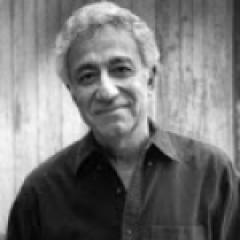Mike Rose: Bringing Technical Expertise into the Public Sphere
I teach in the Social Research Methodology Division of the UCLA Graduate School of Education and Information Studies (it’s a mouthful, I know), and students come to us to specialize in statistics, or educational testing and measurement, or program evaluation, or qualitative methods—the kind of thing I do. Some students pursue research projects that draw on several of these approaches. Our students are very sharp and decent and hard-working, and a number of them are pursuing their studies after having taught school or worked in some kind of public policy setting. They want to become expert at research methodologies that will help them better understand what goes on in and around schools, and, in some cases, what they have witnessed while teaching or doing policy work. They want to make a difference.
As in any field—medicine, geography, dance—the further along students get in their studies, the more specialized their work becomes. Though our students’ work might well have broad implications—for example, in testing or in evaluating educational programs—their professional vocabulary and procedures can become esoteric, understood by peers but opaque to most others.
So it was unusual and significant when a small group of them decided on their own to start a blog that drew on this technical knowledge to address educational issues in a plainspoken way. It is called The Teaching Diablogue, and its goal is to “create a dialogue between teachers and researchers about how to measure and improve teaching and learning.” All four founders either taught, or worked in policy, or both before coming to UCLA.
There has been talk for decades about the need to “bridge research and practice,” and, more recently, real effort on the part of some in education to embed research into practice, that is, to challenge the historic distinction that has separated (and elevated) research from the work actually done in schools. What our students did by initiating their blog certainly plays out against this backdrop, but they also did something else that I think is desperately needed: they are trying to find a way to bring the technical expertise they’re developing out into the public sphere—where it has immense relevance.
A number of school reform initiatives that have emerged over the past decade—high-stakes standardized tests, value-added teacher evaluation schemes, the evaluation of teacher education programs—are built on statistical and measurement techniques that, more often than not, are misapplied and/or poorly implemented. While there are heated debates and criticism of all this within the various communities of educational researchers, little of the discussion makes its way out into the world. There are important exceptions: the National Education Policy Center at the University of Colorado at Boulder, A Sociological Eye on Education, Computing Education Blog, and Granted, and…thoughts on education among them.
We live in an age enthralled with technology and with technocratic solutions to complex human problems—and education reform has been imbued with the technocratic mindset. So we need people with the technical chops to analyze these technocratic solutions and to help us use statistical, measurement, and evaluation technologies in an informed and sensible way. These researchers would see their involvement as part of what they do, not an add on, not a little slice of public service, but integral to their work as statisticians, experts in program evaluation, and the like. I think that’s the way the founders of Diablogue see it, and I wish more educational researchers saw their roles this way and developed the skills to engage the public sphere.
This blog post has been shared by permission from the author.
Readers wishing to comment on the content are encouraged to do so via the link to the original post.
Find the original post here:
The views expressed by the blogger are not necessarily those of NEPC.
